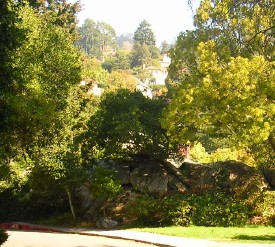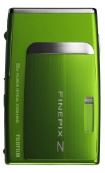
|
||||||||||||||||||||||||||||||||||||||||||||||||||||||
|
I've given Leopard a chance, but it's pretty clear, this is not a good operating system release. I've been out of the Mac loop for most of the last decade, just got back in a bit over 2 years ago. I don't know if early OS releases are generally as crappy as this one, but I wasn't prepared for where we're at now. If I had known, I would have waited, instead of upgrading most of my Macs to the new system.
To Apple, I left Windows because it held my time and work in low regard. I was happy with the Mac because it seemed reliable. Now it seems my friend was right, I'm using Windows again, and I'm not happy about it. RayS on Twitter asked why it is that more feed readers don't support the <comments> element in RSS 2.0. Interestingly, less than two hours before, I had added the element to the Scripting News feed. It's appropriate because there are now per-element comments here, people who subscribe should have the benefit in addition to people who read this blog in a web browser. Truth is that some feed readers do support the comments element. All of mine do, dating back to Radio 8.0 shipped in January 2002, which is still my daily reader. It's really a simple feature, not very hard to implement. If an item has a comments element, it's represented as a little pencil in the right margin. Click on it and you go directly to the comments. Maybe by writing about it here we'll find out that others already support it, and maybe encourage others to add support. We seem to have adopted the Disqus guys, helping them evolve their product to better suit our needs. It's a win-win because I'm getting a better comment system, and so are they. Yesterday I asked for an XMLization of my site's comments, and this morning I have them, and can provide more feedback. Here's where you go to see the feedback and any ensuing discussion. Three word comment: I want one! A TwitterGram, recorded through my iPhone, explains why Google's phone will be important, and why I want one. My email address got cut off at the end, darn it, it's dave dot winer at gmail dot com.
Then on August 29, a review in the NY Times of the Fujifilm Z10fd said it could beam photos to other cameras that support the IRSimple protocol. Unfortunately the camera wouldn't ship until October. Well, it's now November, the camera is shipping. Yet none of the reviews on Amazon mention its social feature. I was thinking of getting one, but then what's the point if no one else has it? According to the reviews it's a fairly ordinary digital camera otherwise. (Though it has a "blog mode" which is mentioned but not adequately explained in the video ad.) So -- do you think this this baby bootstraps? Are social cameras here now, or a thing of the future? |
Dave Winer, 52, pioneered the development of weblogs, syndication (RSS), podcasting, outlining, and web content management software; former contributing editor at Wired Magazine, research fellow at Harvard Law School, entrepreneur, and investor in web media companies. A native New Yorker, he received a Master's in Computer Science from the University of Wisconsin, a Bachelor's in Mathematics from Tulane University and currently lives in Berkeley, California. "The protoblogger." - NY Times.
"The father of modern-day content distribution." - PC World.
One of BusinessWeek's 25 Most Influential People on the Web. "Helped popularize blogging, podcasting and RSS." - Time.
"The father of blogging and RSS." - BBC.
"RSS was born in 1997 out of the confluence of Dave Winer's 'Really Simple Syndication' technology, used to push out blog updates, and Netscape's 'Rich Site Summary', which allowed users to create custom Netscape home pages with regularly updated data flows." - Tim O'Reilly.
My most recent trivia on Twitter. On This Day In: 2006 2005 2004 2003 2002 2001 2000 1999 1998 1997.
|
|||||||||||||||||||||||||||||||||||||||||||||||||||||
|
© Copyright 1997-2007 Dave Winer. Previous / Next |
||||||||||||||||||||||||||||||||||||||||||||||||||||||
 Talking with a friend a few days ago, he asked what I thought of Leopard. He had installed the new version, like me, the first day it came out. "I'm not liking it," I said. He said something that was simple, profound and revealing: "It's like Windows." It is. It's that unpleasant to use. It disappears for long periods of time. Systems that didn't used to crash now crash regularly. On one system three hard disks were rendered unusable, and I lost a couple of full days restoring them (luckily I had good backups). The user interface is quirky. The new networking interface is a big step backward. The
Talking with a friend a few days ago, he asked what I thought of Leopard. He had installed the new version, like me, the first day it came out. "I'm not liking it," I said. He said something that was simple, profound and revealing: "It's like Windows." It is. It's that unpleasant to use. It disappears for long periods of time. Systems that didn't used to crash now crash regularly. On one system three hard disks were rendered unusable, and I lost a couple of full days restoring them (luckily I had good backups). The user interface is quirky. The new networking interface is a big step backward. The 



